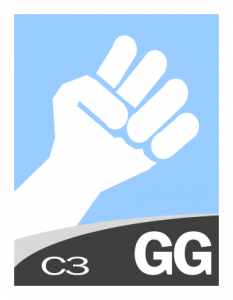 The Group Grievance Indicator focuses on divisions and schisms between different groups in society – particularly divisions based on social or political characteristics – and their role in access to services or resources, and inclusion in the political process. Group Grievance may also have a historical component, where aggrieved communal groups cite injustices of the past, sometimes going back centuries, that influence and shape that group’s role in society and relationships with other groups. This history may in turn be shaped by patterns of real or perceived atrocities or “crimes” committed with apparent impunity against communal groups. Groups may also feel aggrieved because they are denied autonomy, self-determination or political independence to which they believe they are entitled. The Indicator also considers where specific groups are singled out by state authorities, or by dominant groups, for persecution or repression, or where there is public scapegoating of groups believed to have acquired wealth, status or power “illegitimately”, which may manifest itself in the emergence of fiery rhetoric, such as through “hate” radio, pamphleteering, and stereotypical or nationalistic political speech.
The Group Grievance Indicator focuses on divisions and schisms between different groups in society – particularly divisions based on social or political characteristics – and their role in access to services or resources, and inclusion in the political process. Group Grievance may also have a historical component, where aggrieved communal groups cite injustices of the past, sometimes going back centuries, that influence and shape that group’s role in society and relationships with other groups. This history may in turn be shaped by patterns of real or perceived atrocities or “crimes” committed with apparent impunity against communal groups. Groups may also feel aggrieved because they are denied autonomy, self-determination or political independence to which they believe they are entitled. The Indicator also considers where specific groups are singled out by state authorities, or by dominant groups, for persecution or repression, or where there is public scapegoating of groups believed to have acquired wealth, status or power “illegitimately”, which may manifest itself in the emergence of fiery rhetoric, such as through “hate” radio, pamphleteering, and stereotypical or nationalistic political speech.
Questions to consider may include*:
Post-Conflict Response
- Truth & Reconciliation: Does a Truth & Reconciliation process exist or is one planned, needed?
- Reintegration: Have groups been reintegrated, if applicable?
- Reconstruction: Is there a plan for reconstruction and development?
- Compensation for Victims: Are victims of past atrocities compensated or is their a plan to compensate them?
- War Criminals: Are war criminals apprehended and prosecuted? Do the public feel they are properly punished?
- Amnesty: Has amnesty been granted?
Equality
- Distribution of Resources: Is there an equitable and efficient distribution of resources?
Divisions
- Group Hatred or Tolerance: Are there feelings of or reports of ethnic and/or religious intolerance and/or violence?
- Group Oppression: Are groups oppressed or do they feel oppressed?
- History: Is there a history of violence against a group or group grievance?
- Intergroup Relations: How are intertribal and/or interethnic relations?
- Religious Persecution or Tolerance: Is there freedom of religion according to laws and practiced by society? Are there reports of violence that is religiously motivated?
Communal Violence
- Vigilante Justice: Are there reports of vigilant justice?
- Mass Violence: Are the reports of mass violence and/or killings? Are there reports of violence that is racially motivated?
* Indicator descriptions are not exhaustive, and are intended only as an entry point for further interpretive analysis by the user.